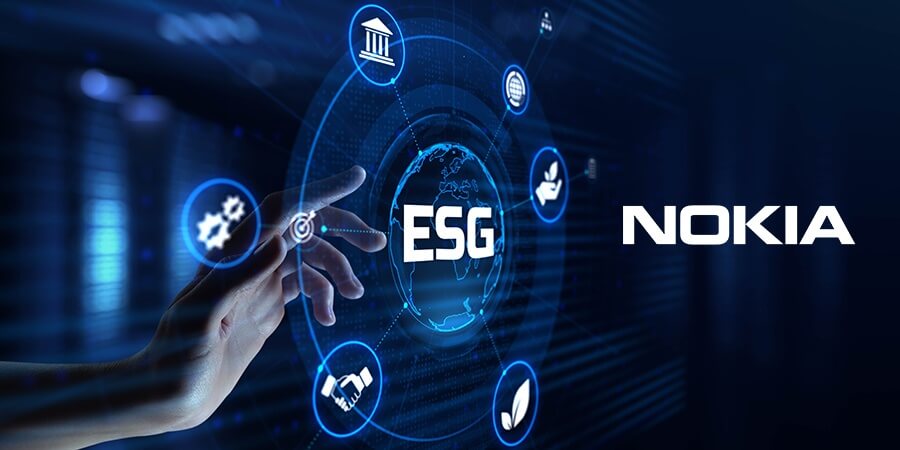Nokia announced an enhanced Environmental, Social and Governance (ESG) strategy, integrated into its business and technology strategies and focused on the areas where it can have the most significant impact.
Sustainability is core to Nokia’s purpose of creating technology that helps the world act together. Building on years of robust sustainability programs and practices, Nokia has spent the past twelve months developing an enhanced company-wide ESG strategy to ensure that sustainability is a fundamental part of how Nokia develops technology and makes business decisions.
The ESG strategy builds on five strategic focus areas where Nokia looks to differentiate and create tangible environmental and social benefits: environment — focusing on both climate and circularity; industrial digitalization; security & privacy; bridging the digital divide; and responsible business.
Exclusive: 5G-Advanced Will Make Digital Experiences Truly Immersive, Says Nokia’s Aji Ed
Within the environment focus area, Nokia aims to be the leader in energy efficiency by building on its silicon, software and systems, further leveraging opportunities to optimize across the network with energy orchestration and green operations. Nokia is already working to improve energy efficiency in 5G-Advanced and 6G through early engagement in standardization and ecosystem development. Regarding circularity, Nokia focuses on hardware circularity — using recycled materials in its own products as well as refurbishing and recycling products when removed from customers' networks.
Exclusive: 6G Will Become the Network of Sensing, Says Nokia’s Mikko Lavanti
In Industrial Digitalization, Nokia provides connectivity and digital solutions that sustainably transform physical industries, making them more sustainable, safe and productive. To achieve this, we focus on the “Green Digital” proposition in our Enterprise portfolio.
Exclusive: Beyond Connectivity: Nokia Enables Industrial Digitalization
In security and privacy, Nokia is working to ensure a common security baseline for products and services and is accelerating its security offering. Here, product development follows the “Design for Security” methodology, building security into the life cycle from the very start. Nokia’s security experts partner with our customers to not only build and maintain secure networks — remaining compliant with national regulations for critical telecom infrastructure — but also assess the security resilience of networks against real attack scenarios and incursions.
Nokia aims to bridge the digital divide with its broad product portfolio, maintaining focused strategies with non-terrestrial network operators and digital skills-building solutions.
Nokia will continue to take a proactive and values-driven approach to driving responsible business practices internally and in its value chain, working closely with customers and suppliers to engage on systemic issues related to the environment while mitigating the misuse of technology (and advocating for responsible AI principles) and advancing ethics, human rights and better working conditions.
Nicole Robertson, VP, ESG at Nokia, said: “The line between purpose and profit is dissolving, and companies are looking to identify the best ESG strategies to deliver measurable impact to societal challenges and drive value creation.”
Nokia’s enhanced ESG strategy has been developed across the company, leveraging its portfolio strengths as well as Bell Labs’ research to accelerate Nokia’s positive impact, create new value opportunities for its customers and deliver sustainable value creation for its shareholders.
